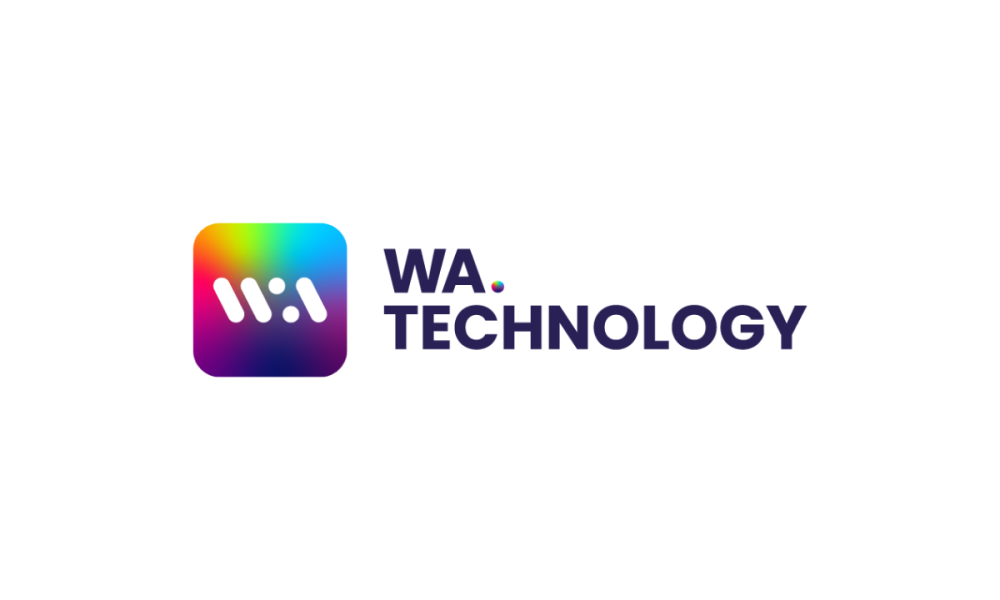

Compliance Updates
TG Lab makes hotly anticipated Dutch market debut
Leading gaming platform provider has been given the green light to launch its technology to customers in the Netherlands
TG Lab has entered the recently-regulated Dutch market after securing the required certifications for both its player account management platform and iGaming/sportsbook platform.
The certification means the B2B provider can now help its long-term operators make their debut in the recently regulated market. It is also in late-stage discussions with a number of operators looking to launch in the Netherlands and leverage its highly customisable and localised technology suite.
The TG Lab iGaming platform has been designed to allow operators to take control of the technology and accelerate product innovation, allowing them to cut down on operational costs. This is achieved through advanced automation that replaces a great number of manual processes and activities.
Platform highlights include being able to manage multiple brands in multiple regulated markets from a single platform and the ability to add bespoke functionality based on the operator’s own needs.
Ugnius Simelionis, CEO of TG Lab, said: “The Netherlands has the potential to be one of the biggest online gambling markets in Europe and the early numbers are already surpassing initial expectations.
“Right now, we are focusing our expansion plans on the DACH region so securing the required certifications to launch in the Netherlands supports this strategy and further strengthens our presence in Western Europe where we are active in markets such as Germany and Belgium.
“We go to great lengths to ensure that our platform, products and services are available to operators in all regulated markets across Western Europe and beyond and expect to be a key player in the Netherlands as the market continues to grow and mature.”
Certification in the Netherlands comes shortly after TG Lab made its debut in Belgium and Germany.
In addition, the provider already holds licences in the UK, Malta and its platform has been certified in multiple Nordic and Baltic countries.
Brazil
WA. Technology Receives GLI Certification in Brazil for Casino Aggregator Product

Certification for its standalone casino aggregator product allows WA Technology to increase its range of integrated iGaming content supplied to operators in the Brazilian market.
This ever-expanding catalogue of content includes tens of thousands of games, cementing it as a more trusted partner for operators seeking to thrive in this market, with the added assurance that it fully complies with Brazilian regulatory requirements.
Meeting the necessary requirements for the casino product builds on WA Technology’s strong record in the region, where it already has an established presence and certified platform, with an experienced team of professionals based out of an office in Recife. This gives the business a unique understanding of the players in the country and the team to simplify any complexities that may arise for operators.
The certification follows on from recent launches such as its Pick’Em player products for stats-led gameplay and Sportsbook Managed Service, to provide operators with more services and opportunities to grow.
Country Director for Brazil said: “This is a significant milestone for the business and signals our intent to expand further into the Brazilian market. I’m proud of the team’s hard work to secure this certificate and allow us to meet the market demands for casino games within this region.
The post WA. Technology Receives GLI Certification in Brazil for Casino Aggregator Product appeared first on Gaming and Gambling Industry in the Americas.
Australia
AUSTRAC Launches Civil Penalty Proceedings Against Mounties

AUSTRAC has launched Federal Court civil penalty proceedings against Mount Pritchard District and Community Club (Mounties), for alleged serious and systemic non-compliance with Australia’s anti-money laundering and counter-terrorism financing (AML/CTF) laws.
AUSTRAC alleges that Mounties contravened the AML/CTF Act, providing gaming services to its customers in circumstances where it had not adopted and maintained an AML CTF programme in compliance with the AML/CTF Rules.
AUSTRAC CEO Brendan Thomas said AUSTRAC alleges failures in Mounties’ approach to its anti-money laundering obligations have left it open to criminal exploitation.
“Mounties is one of the largest and most profitable club groups in NSW. It owns 10 venues, 8 of which operate approximately 1,400 poker machines and it makes hundreds of millions of dollars in revenue from money gambled on those machines,” Mr Thomas said.
“This is a big company with an even bigger responsibility to ensure its clubs are managing the risks that criminals can run dirty money through its gaming machines.
“AUSTRAC’s 2024 Money Laundering in Australia National Risk Assessment identified pubs and clubs as a medium risk sector, but when those businesses are exposed to cash, especially in circumstances where known money laundering risks are not being managed, the risk increases.”
“A business operating at this scale, in a cash intensive sector, is exposed to a high degree of money laundering risk. In 2022 for example, the NSW Crime Commission released its Project Islington report which determined that billions of the approximately $95b gambled in NSW poker machines in 2021-22 was likely to be dirty money.”
AUSTRAC alleges Mounties AML/CTF programme:
• did not have an adequate risk assessment
• did not contain appropriate staff risk awareness training
• did not contain appropriate risk based systems and controls in its transaction monitoring programme
• did not include appropriate risk based systems and controls in its enhanced customer due diligence processes
• was not subject to an independent review that met the requirements of the Rules
• and that Mounties failed to appropriately monitor a number of its customers with a view to identifying, mitigating and managing the money laundering risk that Mounties faced.
AUSTRAC also alleges Mounties failed to appropriately maintain its AML/CTF Programme, with aspects of its programme outsourced to a third party provider, Betsafe – which also provides AML/CTF programmes to a number of other pubs and clubs.
“Like many other AUSTRAC reporting entities, Mounties outsources aspects of its AML/CTF program but what it can’t outsource is its AML/CTF obligations.”
“Relying on third party providers doesn’t absolve a business of its obligations under the AML/CTF Act. If a reporting entity outsources key parts of its program to a service that is not fit for purpose – especially without proper oversight or resourcing – they run a real risk of non-compliance.
“All reporting entities, regardless of size, must stay actively involved in how their AML/CTF program is designed, implemented and monitored and I would say the same thing to other pubs and clubs who think bringing in a provider is a set and forget solution.”
AUSTRAC also alleges a number of specific instances where Mounties failed to appropriately monitor specific customers, despite the money laundering risks they presented.
“Customer due diligence and transaction monitoring in a club that processes hundreds of millions of dollars a year through its poker machines, a significant amount of which is cash, is going to require a robust approach when it comes to verifying a customer’s source of funds,” said Mr Thomas.
It is now a matter for the Federal Court of Australia to determine whether Mounties contravened the Act and, if so, what orders to make.
The post AUSTRAC Launches Civil Penalty Proceedings Against Mounties appeared first on European Gaming Industry News.
Compliance Updates
Isle of Man Government Publishes Terrorist Financing National Risk Assessment

The Isle of Man Government has published its first standalone Terrorist Financing (TF) National Risk Assessment (NRA), which is a significant step in strengthening the Island’s defences against terrorist financing and reinforces its commitment to international standards.
The TF NRA builds upon the findings of the 2015 and 2020 Money Laundering and Terrorist Financing NRAs and provides a focused analysis of the TF risks relevant to the Isle of Man as an international financial centre (IFC). It is a key component of the Island’s broader strategy to meet the Financial Action Task Force (FATF) recommendations on anti-money laundering, countering the financing of terrorism and countering the financing of proliferation (AML/CFT/CPF).
The assessment, which began in April 2024, involved contributions from 48 local experts, industry representatives, and international partners including the UK Home Office and the World Bank.
It concludes that the Isle of Man faces a medium-low overall risk of being used as a conduit for terrorist financing, with the highest risk identified in the area of transit TF — the potential for funds to pass through the Island’s financial system en route to other jurisdictions. Whilst it is notable that the overall rating remains the same as the last TF NRA, conducted in 2020, this report provides further assurance of that rating by the use of more detailed data, information and analysis.
The FATF is an inter-governmental body that sets standards and promotes effective measures for combating money laundering, terrorist financing and other related threats to the international financial system.
The FATF-style regional body for the Isle of Man is MONEYVAL, the Council of Europe Committee of Experts on the Evaluation of Anti-Money Laundering Measures and the Financing of Terrorism, based in Strasbourg, France.
The Isle of Man’s efforts in combatting financial crime will be subject to an evaluation by MONEYVAL in October next year.
The Island’s main priority is to prevent, detect and disrupt criminal activity on an international scale. If the island cannot demonstrate that it meets the standards expected, the jurisdiction could referred to the “grey-listing” process. This outcome would have a significant negative impact on the economy and damage the international reputation and the ability to do business.
Jane Poole-Wilson MHK, Minister for Justice and Home Affairs, said: “This assessment is a vital tool in our ongoing efforts to protect the Isle of Man’s financial system and uphold our international obligations. It reflects the depth of collaboration across government, regulators, and industry, and highlights both our strengths and the areas where we must continue to build capacity and awareness. We are committed to ensuring that the Island remains a secure and responsible jurisdiction.”
The publication of the TF NRA will be supported by outreach to industry to help stakeholders understand and apply the key findings. A separate NRA focused on Non-Profit Organisations (NPOs) TF is also in development and will be presented for approval in due course.
The post Isle of Man Government Publishes Terrorist Financing National Risk Assessment appeared first on European Gaming Industry News.
-

 gaming3 years ago
gaming3 years agoODIN by 4Players: Immersive, state-of-the-art in-game audio launches into the next generation of gaming
-
EEG iGaming Directory8 years ago
iSoftBet continues to grow with new release Forest Mania
-
News7 years ago
Softbroke collaborates with Asia Live Tech for the expansion of the service line in the igaming market
-
News7 years ago
Super Bowl LIII: NFL Fans Can Bet on the #1 Sportsbook Review Site Betting-Super-Bowl.com, Providing Free Unbiased and Trusted News, Picks and Predictions
-
iGaming Industry8 years ago
Rick Meitzler appointed to the Indian Gaming Magazine Advisory Board for 2018
-
News6 years ago
REVEALED: Top eSports players set to earn $3.2 million in 2019
-
iGaming Industry8 years ago
French Senator raises Loot Boxes to France’s Gambling Regulator
-
News7 years ago
Exclusive Interview with Miklos Handa (Founder of the email marketing solutions, “MailMike.net”), speaker at Vienna International Gaming Expo 2018









